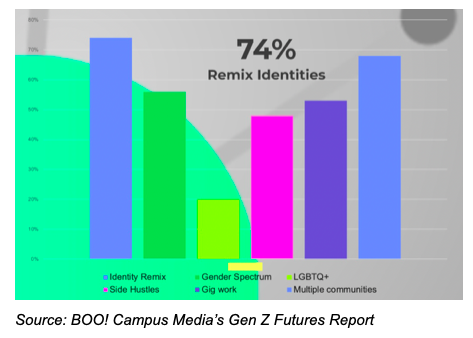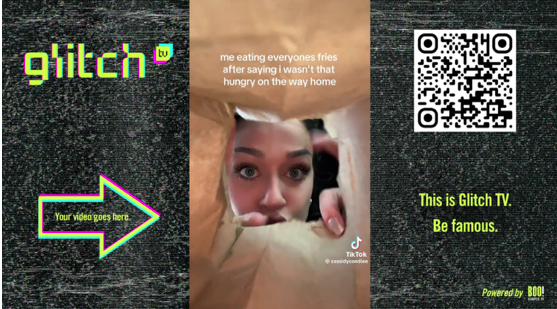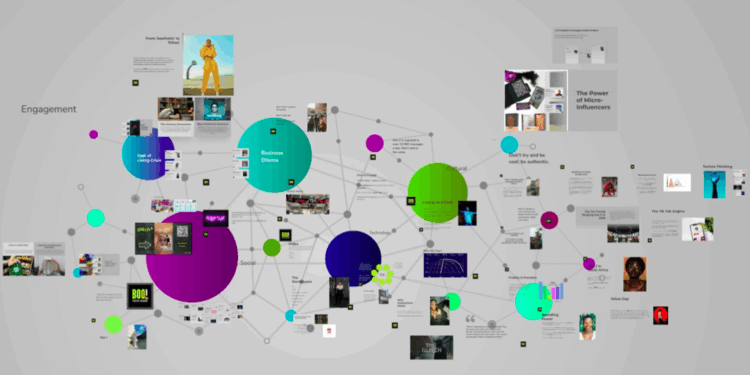Gen Z, South Africa’s most powerful consumer force, is a generation defined by its aversion to fleeting trends, cultural stereotypes, ‘woke’ labels and ‘cancel culture’, and its love of authenticity, restful rebellion, and resilience in the face of mental, financial and climate crises.
And contrary to popular belief, young people do not see AI as the future, but rather as a “sidekick for hustling smarter, creating faster, and scaling ideas at unprecedented speed”.
These findings were released today in BOO! Campus Media’s Gen Z Futures Report, a landmark study designed to help brands, educators, and businesses engage with the largest generational cohort in history.
“Our research reveals how Gen Z is reshaping identity, work, and culture, with 74% remixing their identity across contexts and 65% experiencing mental health challenges yet engaging with it in resourceful ways,” says Greg Potterton, author of the report and chief growth officer at BOO! Campus Media, South Africa’s leading student media company.
The report draws on more than two decades of youth insight through engagement with major global brands, new global and local research, and extensive interviews with 120 student influencers.
Gen Z’s immense spending power
Globally, Gen Zs account for over 40% of consumers, and at a total population size of 19 million, this group of 13- to 28-year-olds currently make up an estimated 29% of South Africa’s population.
By 2030, this cohort is projected to have an annual spending power of more than R1.1 trillion. They already influence more than 80% of household purchasing decisions, making them a cultural and economic force no brand can afford to ignore, the report finds.
More than 72% say affordability is a major purchasing consideration, and they expect brands to offer student discounts and bundle deals. Affordability earns their loyalty.
In South Africa, although many Gen Zs earn under R5 000 (excluding side hustles), they are skilled at managing their money, saving an average of R1 800 a month. More than 60% are also running side hustles to supplement their income in order to cope with the cost of living crisis.
They mainly spend on data, airtime, food, drinks, beauty, gadgets and entertainment and value durable, high-quality goods that give them a sense of stability, identity and cultural relevance.
70% of Gen Zs prize financial independence – something that was easier for older generations – and they value brands that guide them there.
Why Gen Zs choose the slow, real and fluid
A major finding of the Gen Z Report is that today’s 20-somethings value ‘slow communities’ – favouring real-world connection and slow living over the burnout experienced from hyper-speed digital life, parasocial connection (one-sided emotional connection with celebrities or influencers, who are unaware of their existence), and the feeling of being “always on”.
Similarly, they favour re-wearing, upcycling and spending on ‘investment pieces’ with longevity that express authentic identity, rather than rapid turnover of micro-trends. In fact, 73% are willing to pay more for products that align with their values or reflect their identity rather than the latest trend. 61% describe themselves as “forever customers… if brands deliver on authenticity, quality and value”.
“Gen Z is shifting from mere aesthetics to the underlying value of brands… and seeks brands that demonstrate genuine commitments to sustainability, diversity and ethical practices.”
In terms of identity, fluidity is everything. “Careers are non-linear, interests shift quickly, relationships flow between offline and online, cultures blend, and gender and sexuality are open spectrums. They do not equate fluidity with being ‘woke’.
So-called ‘woke’ culture will likely give way to a culture of pragmatic authenticity, where values are lived quietly, complexity is accepted, and actions matter more than optics.”
Up to 40% of Gen Zs grapple with anxiety and view rest as an act of quiet rebellion in the face of academic burnout, financial and political stress and climate pressures.

The media savvy of the Gen Z generation
The Gen Z generation is exposed to an average of 10 000 messages a day. “Brands shouldn’t add to the noise, or share messages that feel inauthentic or exploitative. This generation is very discerning in terms of content, and has a highly attuned bullsh*t radar,” says Potterton.
Gen Zs spend an average of seven hours a day on their phones, three of which are on social media. Content has to be immediate, and social media is central to their lives, with TikTok setting the beat for music, fashion and activism, long before it hits the mainstream.
“About 64% drop off from long form content after a minute, but when it comes to brand messaging, we’re heading towards the 3-second attention span.”
Gen Zs do, however, still appreciate traditional anchor media, and in the campus setting, billboards, radio and digital screens “cut through the scroll”, signalling that a brand is established and worth noticing.
In terms of AI, young people see it not as a threat but as a tool and since it is levelling the playing field of media creation, they now value brands that display authenticity rather than high production value.
What brands should know about Gen Zs
“Gen Z is not just another youth segment – they are the largest, most connected, and most culturally influential generation ever,” says Potterton.
“Fluid in identity and fearless in expression, they remix culture, careers, and communities in ways no generation has before. Brands are missing the moment. That is why this report is a powerful tool for leaders who want to stay relevant, adapt quickly, and thrive in a future shaped by Gen Z.”
BOO! Media launches Youth Board and GLITCH TV for trend-shaping cultural insights
In tandem with the report, BOO! Campus Media is also launching its Youth Board and a new TV channel airing at campuses across South Africa.
The Youth Board is an online community of influential students drawn from campuses across the country, serving as a dynamic bridge between brands and youth culture to provide real-time feedback, trend insights, and co-creation opportunities to ensure brands stay aligned with Gen Z’s fast-changing world.
Glitch TV is a disruptive new platform that gives students the chance to showcase their TikTok reels across 220 campus digital screens nationwide. “With just one upload, students can see their creativity come alive on the biggest stage of their life: their own campus. It’s a cultural stage built by students, for students, where community, creativity, and culture collide,” said Curtis Deysel, executive producer for content at BOO! Campus Media.
Dave McKenzie, founder and CEO of BOO! Media, concludes: “At Campus Media our strength lies in being immersed in student life across South Africa, as our media platforms on campus offer 360-degree solutions.
“The Gen Z Futures Report and the Youth Board cement our role in providing clients with both foresight and immediate access to youth culture. Together, they provide the roadmap and the real-time connection brands need to succeed with Gen Z.”

The Gen Z Futures Report and the Youth Board are now available to BOO! Campus Media partners, clients, and stakeholders who want to future-proof their youth strategies.
A note on the research methodology: The report was a culmination of five years of ongoing Gen Z research, based on interviews with around 120 deeply profiled youth influencers. These individuals are more than just trendspotters, as they also are able to clearly explain why emerging shifts matter and how they will shape youth culture. This lived experiences were reinforced with secondary syndicated global data sources and 20 years of ethnographic youth insights, then refreshed using real-time analysis powered by large language models (LLMs) to ensure accuracy and cultural relevance. The result is a living insight model that blends human depth with the scale of robust data.
BOO! Campus Media is South Africa’s leading campus media specialist, connecting brands with students through a powerful ecosystem of out of home (OOH), digital, content, and influencer solutions across the country’s top universities. Its revolutionary profit sharing model has poured millions back into university coffers since the #FeesMustFall movement. Campus Media is part of the BOO! Media Group:
The Campus TV network is a first-of-its-kind media company, and the only dedicated campus media organisation serving the students of South Africa. It has more than 200 large-format screens across the 10 universities, located in high dwell time locations. Its dynamic digital content reaches students in libraries, student centres, coffee shops, restaurants, major walkways, pass areas of large lecture rooms and sites overlooking picnic and rest areas.
Greg Potterton, Chief Growth Officer for BOO! Campus Media, is a global strategic marketing consultant and youth culture specialist. Greg has over 20 years of experience helping world-leading brands understand and influence the next generation of consumers, and has advised multinational clients including Google, Nike, Unilever, Heineken, G-Star RAW, PepsiCo and Red Bull, both as the founder of Instant Grass Holdings and at BOO.














